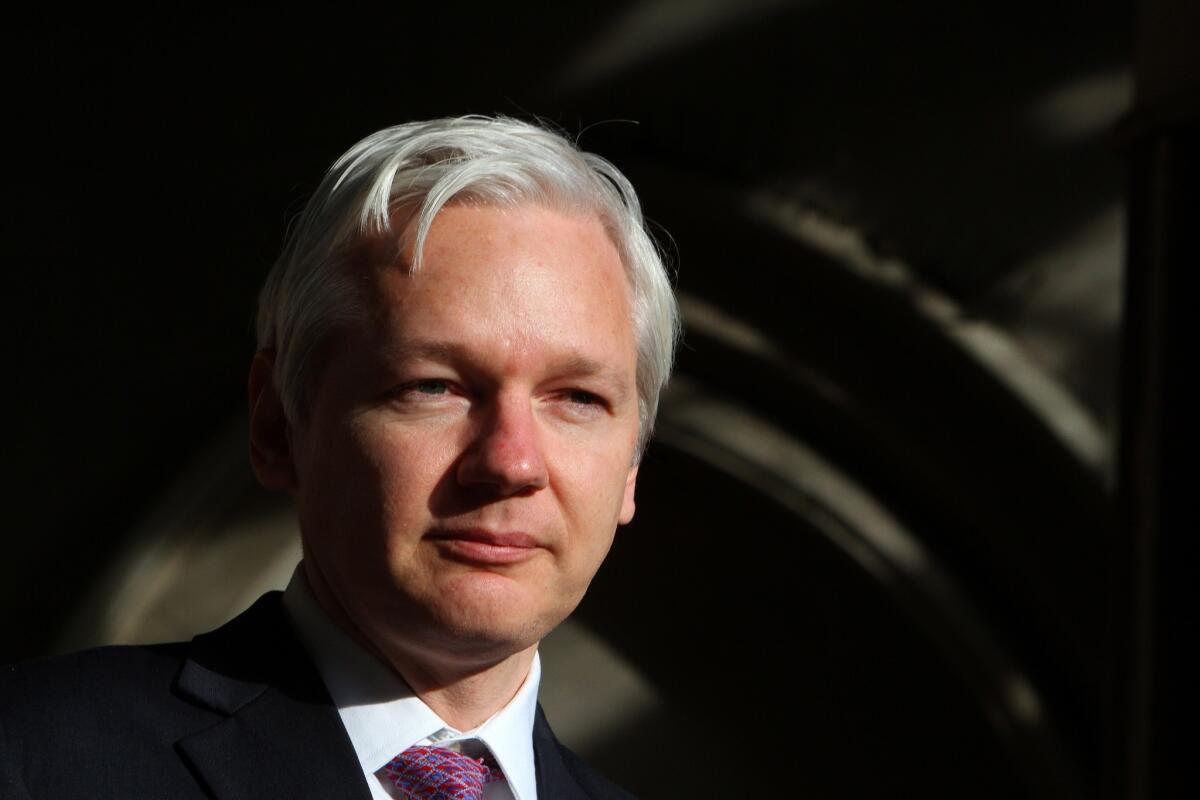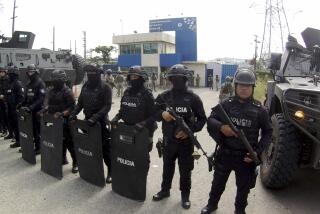Julian Assange says he will soon leave Ecuadorean Embassy

WikiLeaks founder Julian Assange suggested at a news conference Monday that he could soon be leaving the Ecuadorean Embassy in London, where he has been holed up for two years to avoid extradition to Sweden.
Assange did not explain, however, under what circumstances he thought he could go.
The 43-year-old Australian is said to be suffering from health problems. Asked about speculation that he might leave the embassy to seek medical treatment, he responded: “I can confirm that I am leaving the embassy soon” -- but perhaps not, he added, for the reasons given in British news reports.
Assange refused to elaborate on the cryptic remark. His spokesman, Kristinn Hrafnsson, later told reporters that Assange had no intention of turning himself in to the British police and would leave the embassy only if the government “calls off the siege outside.”
Sweden wants to question Assange about allegations that he sexually assaulted two women in Stockholm in 2010. Assange acknowledges having sex with the women but denies using force or coercion.
He and his supporters fear the allegations are a pretext for his eventual extradition to the United States, which they believe wants to try him on espionage charges over the release of thousands of leaked classified documents. They are demanding safe passage for him to go to Ecuador, which has granted Assange political asylum.
Asked about his health, Assange described life inside the embassy, which has no outside space, as an “environment in which any healthy person would find themselves soon enough with certain difficulties.”
The news conference was called after a meeting between Assange and Ecuador’s visiting foreign minister, Ricardo Patino.
Sitting alongside Assange at the central London embassy, Patino said “the situation must come to an end,” and he would seek a meeting with his British counterpart.
He alluded to recent legal changes in Britain that could limit extradition in cases where the requesting country has not made a decision to file formal charges.
However, Jasvinder Nakhwal, an extradition expert at the Peters & Peters law firm in London, told the Los Angeles Times that the law would probably apply only to new cases.
“It’s very questionable whether it applies to his case,” she said. “I would expect that when he emerges from the embassy that he’s liable to arrest.”
Werth is a special correspondent.
More to Read
Start your day right
Sign up for Essential California for news, features and recommendations from the L.A. Times and beyond in your inbox six days a week.
You may occasionally receive promotional content from the Los Angeles Times.






